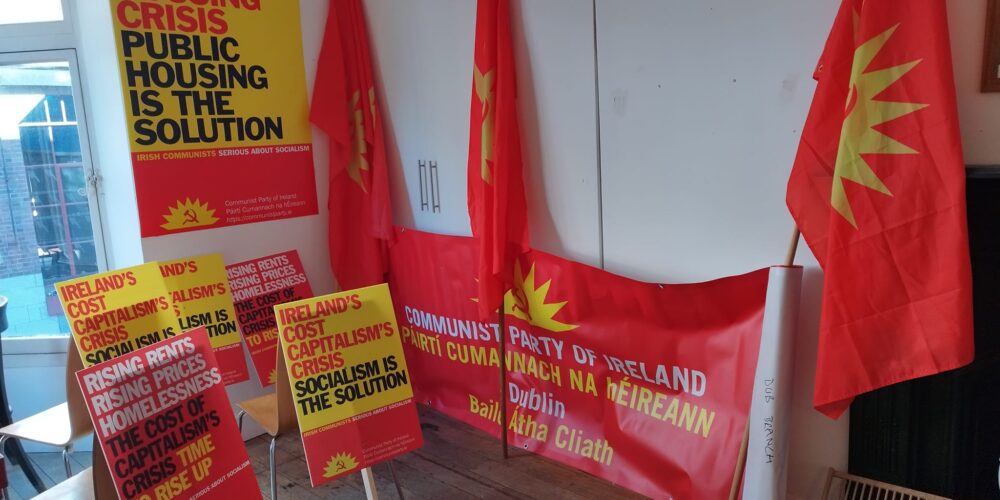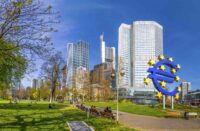Thousands of activists have, over time, chanted these well known words. “What do we want, when do we want it”….”Now !!” This is a very well known chorous from all sorts of political demonstrations and calls for change, all over the world. However well intentioned and correct that call may be, the facts are that real change seldom, if ever, happens NOW.
That could or indeed should lead us to ask the question: what exactly is it that we want now and ultimately? We know we want to end capitalism and its consequences. We know we want to build a Socialist system. And ultimately, a Communist system of living…and thinking. But what is even more important now is; how do we go about getting there? Where do we start? How innovative in our building for Socialism can we be? How many ‘steps down the scale’ do we go to get traction amongst the population, to move them towards what we are struggling for? How much can we diversify without becoming pseudo Marxists or Communists? And we know that there will be changing conditions that will alter the direction of travel on an ongoing basis, as well. But can we devise practical, simple ways that could help to guide us, and the wider population, through these obstacles so that we can create the conditions to build for, in the first instance, a Socialist Republic on the island of Ireland?
People know that they are being exploited. They live with inequality. They know first hand that they are doomed to struggle to just pay the bills and live. However, they don’t feel there is much, if anything, they can do about it. Largely, they don’t even consider it their business to be part of, or even the catalyst for, any change. The majority live in fear because they need to get money to live and they don’t want to ‘rock any boats’ that might cause them problems. The present system we live under, namely capitalism, has them fiscally and intellectually trapped. The tentacles of capitalism have done a good job on their hegemony and control, around the world.
And it would appear, on the face of it, that those who are most exploited today, are not going to rise up against their oppression any time soon.
Of course none of this is new. History is replete with cases of whole generations of people living in abject poverty and oppression, yet they didn’t instantly organise to rise up and try to create the necessary change that would improve their standard of living. Where they do struggle for system change, history also records major state repression, then co-option of those who are involved in that fight and/or finally, the ongoing dilution of any gains conceded under pressure by power. We all have seen at least some parts of this process in action at home and abroad. So we know its real.
Wars and worldwide epidemics, like covid, do set people thinking about their lives. They are forced to ask questions and discover new realities. It also has the potential to expose both the barbarism and failures of those in power. And these ‘events’ can be used by activists to educate and signpost a new way forward.
A central part of that process must be awareness raising in the general population but also the enduring political education of our comrades. Coupled with actions on the ground, this is the never ending praxis. And yes, we seem to have been doing this for an eternity, with little to show for it.
There’s no doubt that it is going to take a lot of effort, ingenuity and sacrifice to even begin to dent the power of capitalism and its allies; never mind retain and develop any gains achieved.
Can we then, begin several steps back from doctrinare Socialism/Communism? Can we show people on the ground in their, day to day, living that they are not just “numbers” to be directed but real people who can make decisions about their immediate lives and their communities. The question is how do we show them that any kind of change is possible, at any level within their lives? Will people learn from and develop new experiences; will it be enough to light the fires of radical or revolutionary actions?
As a central part of their strategy, capitalism divorced the poor and working poor from the means of production. Enmasse, populations moved off the land and into cities and towns. They became wage slaves in the process. Increasingly the food, houses, clothing and health care became a part of the market forces and out of the control of those who needed it. It also means cheap, poor quality products and services for those who cannot pay and the best of everything for those who can. There is clearly an income, food, housing, clothing and services apartheid, at the very least.
Would it be possible, therefore, for activists in their communities, to, as a beginning, get people to grow their own food; on a communal basis. It means healthy, tasty food that people can experience now. Large swathes of our population never even tasted high quality home grown food. Unless it comes washed, processed in a wrapper from Tesco’s or Supervalu, its not considered food. Thats all they know.
Communities are then coming together as an antidote to atomisation by the capitalist system. Conversations happen and barriers come down, under the facilitation of activists. The why’s, who’s what’s, where’s and even when’s of the reality of their lives could well be explored in such circumstances. Could very local ‘Peoples Assemblies ‘ evolve from such initiatives.
Why could we not, in time, go further, and work on setting up co-operative housing? Co-operative health care? Co-operative, even Freirian style, education centres. The best example is always the working example.
What can we learn from China, Cuba or Venezuela on all of this? Can we look at successful co-operative systems like the well known Mondragon co-operatives in the Basque country and elsewhere; or even the minor efforts closer to home?
Climate destruction, the mental health crisis in Ireland, are just two areas that can especially be tackled by the wider populace and can be a vehicle that exposes capitalism, teach people the links between them and be a healing process within our communities at the same time. Just as campaigns against poor housing, health care and wars can do as well.
Not very revolutionary perhaps?? That maybe, but it might show people that they have the power of change, at some level; and with guidance might become radical; potentially even revolutionary. At the very least, there might well be a feeling of ownership for what people are trying to build. It comes from the bottom up and is not top down imposed.
In many peoples lives today ..and always… its what happens now that counts. Can we make that count?






